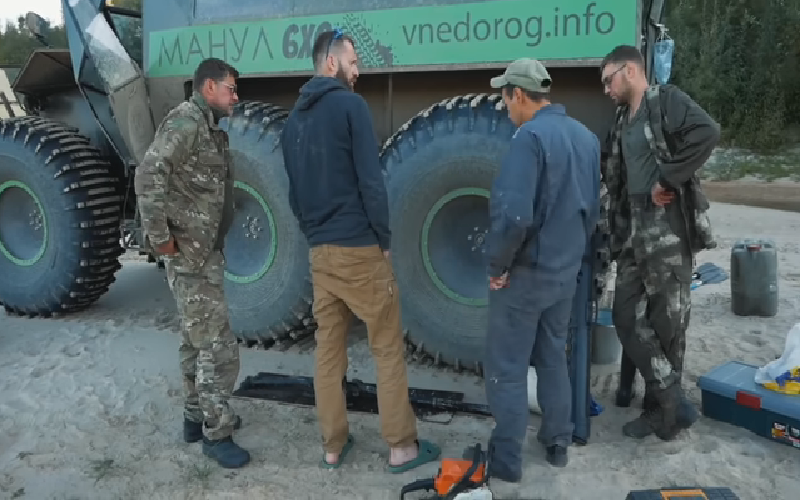Hello!
Today I came across an article by one author on Zen, whom I, in fact, respect very much and usually read with great pleasure. The article was an anguish on the topic «Oh, what a country we have lost.» Which one? And I wanted to say…
I’m fifty «plus», and I managed to live under the Soviets. She graduated from school, college, got married and gave birth to a son, began to work in her specialty …
I often hear moans about how good and reliable it was under Soviet rule, and how bad and scary it is now. And I like the current time much more. And there is no nostalgia.
Did you give out housing for free?
Let’s see what they usually say, remembering life in the Soviet Union? — That’s right, «the apartments were given!». Yes, someone, indeed, was given. Basically, those who worked in factories and plants. But these were not their own apartments! That’s how my dad got the apartment. And when he moved to another city, he rented an apartment. You couldn’t sell it! Another thing is that someone then successfully privatized the housing received from the enterprise.
In the USSR, queues for housing dragged on for years, and very often the children on whom people dreamed of getting the coveted «meters» managed to grow up. And the waiting lists were constantly wiped off by the “thieves”.
Blat is Soviet everything
In the Union, the most valuable were connections — «blat». “Through ties” they “got” food, decent things, bought cars. Because what was sold in stores, what was sewn off by factories working according to the plan, it was impossible to wear.
“Through ties” they arranged children for music schools — then it was very prestigious for a child, especially a girl, to study music.
Having a familiar merchandiser is rare luck!
A friend at the university — just unrealistic luck!
Deficit is the second name of the Soviet system
Why was blat so important in the USSR? — And because of the total deficit. Socks, shorts, shoes, toilet paper, excuse me, paper… All this was not bought — «got it.» What can we say about furniture … And if there was still a chance to buy Soviet goods, then there was a real hunt for «imports». In the 70s and 80s, even such a verb — “buy” — almost went out of use …
I remember the early eighties very well, I’m thirteen years old. Mom gets up at fifteen minutes to five and goes to the corner store to queue for the Hungarian chicken. And she dreams out loud that she could take 4-5 pieces, and not, as usual, “no more than two in one hand.”
And jeans, remember jeans?! If you have American jeans, you will be accepted into any company! If Indian — so-so. And if, in addition to American jeans, you also “got” Adidas sneakers, and a Japanese Bologna jacket, you are almost a god!
When my dad bought me these pants in the 9th grade, there was no cooler person in the class than me. I went to school evenings only in them! Photo from Yandex Pictures. When my dad bought me these pants in the 9th grade, there was no cooler person in the class than me. I went to school evenings only in them! Photo from Yandex Pictures.
Do you remember the verb «farce»?
For clothes and shoes — to the capital
In the Soviet years, regions with more or less tolerable provision could be counted on the fingers. In Azerbaijan, where we lived, the supply was not very good … My dad made good money, worked in several places, had patents for inventions. Therefore, every year my mother could take her daughters (me and my sister) and go to Moscow to visit relatives. She sent me and my sister to museums-exhibitions, and she herself stood in queues for hours to buy decent clothes and shoes for the family.
If you work well and creatively, go to jail!
It is clear that with such a shortage of beautiful clothes, there were people who sewed and knitted at home. In our entrance on the second floor lived a short Armenian woman, now they would say — a fashion designer from God. Mom is a big fashionista, she constantly ordered dresses from her. Dresses turned out — like from a fashion magazine! And then — rrrr! — the news comes that our Karina was sent to prison …
People who could establish production and occupied a free niche in the goods market were called guild workers and imprisoned godlessly. But — not always and not all. Those guild workers who were richer were not touched — they had all the local police “in their pocket”. This, for a moment, is about the fact that corruption is flourishing now … You might think that it did not exist before …
Was education free and accessible? Oh is it!
Next fairy tales. Formally, yes, it was free. In fact, in order to enter, for example, a medical school, they paid bribes, sometimes comparable to the cost of a car. Especially in the southern republics.
But in the Altai Territory, where my family moved in the 80s, the children of collective farm chairmen, secretaries of district committees, chief physicians entered the medical center … The University too. Those who were simpler studied to become teachers, engineers and agronomists… And the bulk of graduates, of course, went to colleges and technical schools.
Basically, the children of “necessary” people entered universities. My parents were not representatives of «thieves» professions, so I had to fail the exam. What the teacher-examiner told me directly. But I prepared well and answered all the questions.
If you are not in the party, then through life past the cash register
Someone says that everything around was filled with edros. Perhaps there is such a thing. But still, you are not told on every corner that the Party is our helmsman, as well as the mind, honor and conscience of our era.
If a person was not a communist, he should not even think about any career. My mother was the head teacher at a large school for 3,000 children. And at the same time non-partisan. Everyone was very surprised! It was the exception to the rule!
Dear Leonid Ilyich!
My parents always subscribed to a lot of newspapers and naturally read them. I once asked my dad why there are so many newspapers: the names are different, but almost the same is written (I was 9 years old). Dad said: “There, on the last pages, in the last columns, there is a little bit different. And the most interesting.
I will not talk about what kind of politician Brezhnev was, the personality is not unambiguous, but his portraits in every publication just made me sick.
Unforgettable General Secretary. Photo from Yandex Pictures. Unforgettable General Secretary. Photo from Yandex Pictures.
About prices. Then and now.
At the end of the 80s, a teacher’s modest salary was 120 rubles (I started with this). Bread cost 20 kopecks. It turned out that I could buy 600 loaves of bread with my salary. Today, the salary of a teacher in poor regions is hardly less than 18,000 rubles. Bread — 30 rubles each It turns out, the same 600 loaves.
After marriage, my husband and I dreamed of buying a TV — it cost 750 rubles, more than my salary for six months. For almost a year they waited in line, moreover, it was a preferential line for young specialists. Now one or two salaries are enough for a teacher — and you have smart-TV. Without any cronyism and queues.
In general, examples can be given for a very long time!
Confidence in the future
This gave us confidence. And in the world, even then, crises raged and wars went on. And two of my school friends died in Afghanistan at the age of 19.
We were all naive and believed what they write in the newspapers and say on TV. There was no other place to get information. We were told that we live well, better than anyone, and tomorrow it will be even better. We believed. The most advanced listened to Voice of America and Radio Liberty. Read «samizdat» literature. Someone sat down for this, for a long time.
No, I don’t miss a bit, I’m not nostalgic for Soviet life!




